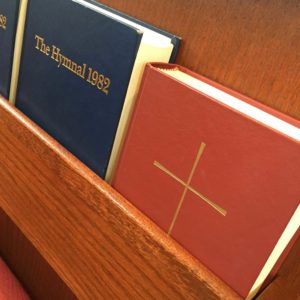 DES MOINES, Iowa — A legal challenge that had been filed against the Iowa Human Rights Commission over its interpretation of local laws pertaining to gender identity has been dropped after a federal judge noted that churches are not generally considered places of public accommodation by the courts.
DES MOINES, Iowa — A legal challenge that had been filed against the Iowa Human Rights Commission over its interpretation of local laws pertaining to gender identity has been dropped after a federal judge noted that churches are not generally considered places of public accommodation by the courts.
“This lawsuit was necessary to ensure that the state won’t try to enforce the law against churches, and we’re pleased that Iowa churches now have the reassurance and clarity that they need,” said Alliance Defending Freedom (ADF) Legal Counsel Christiana Holcomb in a statement.
U.S. District Judge Stephanie Rose responded to motions from both sides of the case on Oct. 14, denying the Commission’s motion to dismiss the suit, while also denying the Fort Des Moines Church of Christ’s (FDMCC) request for an injunction.
In outlining that she did not see FDMCC as being likely to prevail in its legal challenge, she also outlined that the congregation was not likely to be required to allow males who identify as females in women’s restrooms and vice versa.
“[S]tate and federal courts have held that churches and programs they host are not places of public accommodation,” Rose wrote.
“At the hearing before the court, both the State Defendants and the City stated that Plaintiff’s restroom policy is likely permitted under the anti-discrimination laws because the policy is plainly drafted to serve a religious purpose and that all of the activities Plaintiff enumerated within its Complaint also appeared to be religious in nature,” she said. “Plaintiff has not shown that the challenged laws would ever apply to its conduct.”
As previously reported, the Commission’s initial publication issued earlier this year, entitled “Public Accommodations Provider’s Guide to Iowa Law,” noted that sometimes churches are required to follow restroom use and speech laws.“Where qualifications are not related to a bona fide religious purpose, churches are still subject to the law’s provisions (e.g. a child care facility operated at a church or a church service open to the public),” the brochure read.
Therefore, out of concern that the Commission might punish churches for their restroom policies and/or for speaking about their biblical stances on gender identity, the Fort Des Moines Church of Christ filed a lawsuit over the matter.
In response, the Commission adjusted the concerning section of its brochure to provide clarification.
“Places of worship (e.g. churches, synagogues, mosques, etc.) are generally exempt from the Iowa law’s prohibition of discrimination, unless the place of worship engages in non-religious activities which are open to the public,” the new text now reads. “The law may apply to an independent day care or polling places located on the premises of the place of worship.”
But attorneys with Alliance Defending Freedom (ADF) said that the fix did not go far enough to provide assurances that churches would not face legal sanctions as it still applies to “non-religious activities which are open to the public.”
On Wednesday, nearly two weeks after Rose’s ruling, it announced that the organization had dismissed the suit, being satisfied with the court’s response.
“The government cannot legally censor pastors or coerce churches to use their facilities in a way that violates their religious beliefs,” ADF Senior Counsel Steve O’Ban opined. “The Iowa commission’s guidance was vague and empowered government bureaucrats far beyond what the constitution allows. The court cut off this unconstitutional power grab by clarifying that the law does not apply to churches and reassured Iowa churches that they are free from improper state interference.”
Become a Christian News Network Supporter...


